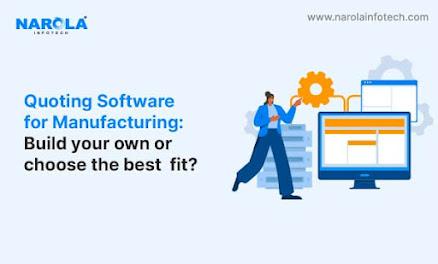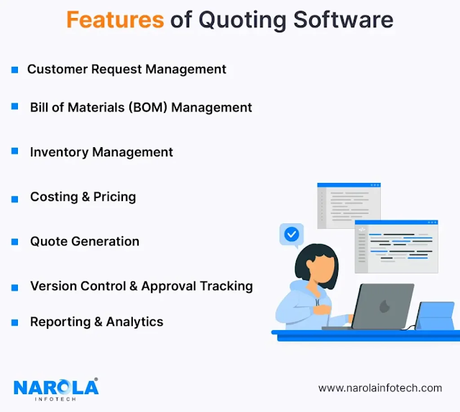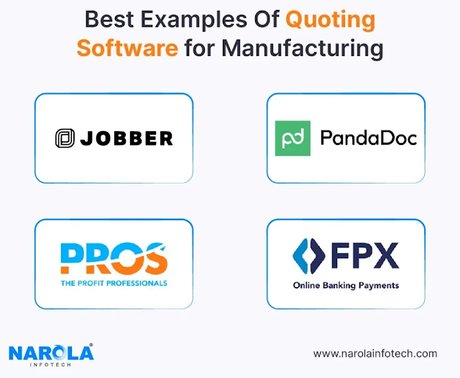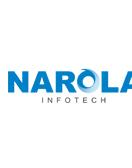
What is Quoting Software for Manufacturing?
Quoting Software for Manufacturing is a sort of software that is specifically developed to assist manufacturers in creating accurate and efficient product quotes. It serves as a centralized hub for managing customer requests, calculating production costs, generating professional estimates, and tracking approvals.
Key Features of Quoting Software

Quoting software features include customer request management, which organizes and captures incoming quotes from potential clients.
Bill of Materials (BOM) Management: Generate and store BOMs for your products, which include materials, labor, and overhead expenses.
Inventory Management: Provide real-time visibility into material availability to eliminate quote delays.
Costing and pricing: Automatically compute production costs using real-time material prices, labor rates, and equipment utilization.
Quote Generation: Create professional-looking quotes using customizable templates that include product descriptions, pricing information, and lead times.
Version Control and Approval Tracking: Track quote revisions, manage client approvals, and ensure everyone is on the same page.
Reporting and Analytics: Understand quotation performance, examine profit margins, and discover areas for improvement.
Advantages of Using Quoting Software for Manufacturing
Increased Efficiency: Automate laborious operations, generate quotations faster, and give your staff more time to focus on strategic activities.
Improved Accuracy: Reduced calculation errors and ensured uniform pricing across all projects.
Increased Profitability: Gain greater control over costs and optimize pricing methods for optimal profitability.
Faster Sales Cycles: Provide estimates fast to keep your sales pipeline moving.
Improved Customer Experience: Offer a professional quote experience that includes clear communication and upfront pricing.
Examples of Top Quoting Software for Manufacturing
Quoting software meets a variety of manufacturing demands. Here are some examples of the best quoting software for manufacturing, coupled with insights from reviews and user feedback:

Jobber (all-in-one for small and medium-sized businesses).
Jobber is a cloud-based platform that includes bidding, task scheduling, billing, and inventory management. Ideal for small and medium-sized manufacturers.
For example, a machine shop owner utilizes Jobber to generate quotations based on predetermined material and labor prices. Within minutes, the software automatically calculates totals and creates a professional quote complete with the company logo.
Reviews: (4.7/5)
Pros and cons
Its simplicity and workflow management are popular, yet some customers want advanced reporting.Simple to use, perfect for small and medium manufacturers, and includes scheduling, quoting, and invoicing.Limited functionality for complicated product setups; may not scale well for large organizations.
Pandadoc (Proposal Management)
PandaDoc, while not designed specifically for manufacturing, has comprehensive quotation features and an easy-to-use interface. It excels in creating visually beautiful proposals and enables for e-signatures, which streamlines the approval process.
For example, a contract manufacturer utilizes PandaDoc to create quote templates that include product alternatives and pricing. The customer can select the features they want, and PandaDoc will prepare a personalized quote including e-signature functionality.
Reviews: 4.5/5
Pros and cons
Its ease of use and beautiful proposal creation are commended, however some customers want for more pricing calculation automation.User-friendly interface, visually appealing proposals with e-signatures, and streamlined customer approvals.Complex quoting functionalities are less robust than dedicated CPQ software.
FPX (Configure, Price, Quote)
It is a robust ERP solution suitable for large firms with complicated product combinations. FPX lets you design product variations, price criteria, and automate quotation generation depending on customer selections.
For example, an electronics manufacturer may use FPX to manage a large number of custom circuit boards. The software configures bids depending on board size, component selection, and quantity, ensuring precise pricing for each variant.
Reviews: (4.8/5)
Pros & Cons
FPX's advanced configurations and quote automation impress producers, although some find the initial setup process time-consuming. Powerful Configure, Price, Quote (CPQ) solution for manufacturers with complicated product variations and price criteria.It can be costly for small firms and takes some technical expertise to set up.
Pros (Advanced Quoting and Proposals)
A comprehensive quote and proposal management solution with advanced features such as version control and real-time collaboration. Pros caters to larger manufacturers with more complicated quoting requirements.
For example, an aircraft manufacturing hires Pros to manage large-scale project quotes. The program enables collaboration between engineering and sales teams, ensuring that all technical specifications and pricing information are included in the final quote.
Reviews: (4.8/5)Pros and cons
Users like its comprehensive customization and scalability, however reviews point out possible difficulty for less complicated industrial processes.Comprehensive quoting and proposal software that includes advanced features such as version control and collaboration capabilities.More complicated UI than simpler quoting software, higher price point.
Building Your Quoting Software: Key Considerations
While off-the-shelf quoting software is a convenient solution, some firms may have specific requirements that necessitate a customized approach. Here, we'll cover the considerations involved in creating your own quoting software.
1. Identifying your needs.
Shop Floor Complexity: How complex are your bill of materials (BOMs)? Do you require additional functionality such as multi-level BOM management and version control?
Integration requirements: Does your quoting software need to work with existing systems such as ERP, CRM, or CAD software?
Read More: Data Integration Tools.
Scalability: What size is your manufacturing operation? Will your software have to accommodate future growth?
Budget: Developing custom software demands a big expenditure. Consider the development and ongoing maintenance expenditures.
2. Development Considerations
Technology Stack: Select a strong technology stack capable of handling sophisticated calculations, data storage, and interface design. Popular choices include Python, Java, and JavaScript frameworks such as React and Angular.
Data Security: Make sure your program has strong data security methods to secure sensitive customer and production information.
User Interface (UI) and User Experience (UX): Create an intuitive and user-friendly interface that simplifies the quoting process for your sales staff and clients.
3. Development ProcessPlanning & Design. Clearly explain your software's functionality, user workflows, and data flow.
Develop the software's basic functionalities, such as BOM management, cost calculation engine, and quote creation tools.
Testing and deployment: Thoroughly test the software for accuracy, performance, and security. Implement a deployment approach that meets your demands (cloud-based, on-premise, etc.).
4. Benefits of Creating Your Own Software.
Tailored Functionality: Cater to your exact manufacturing requirements while integrating smoothly with existing systems.
Scalability and flexibility: Modify the program to meet future expansion and changing business needs.
Data Ownership: Maintain complete control over your data and avoid relying on third-party vendors.
5. Disadvantages of Building Your Own SoftwareCost and Development. Time: Custom development requires a large investment of both time and resources.
Technical expertise is required when developing sophisticated software, either through a competent development team or by working with a software development business.
Ongoing Maintenance: Regular updates and bug fixes are required to ensure peak performance and security.
Which way to go: build or buy?
The decision to design or purchase quoting software for manufacturing is based on your individual requirements and resources. This is a quick guide:
Buy: Ideal for producers who value a quick and cost-effective solution with easily available functionality. Furthermore, off-the-shelf software has a lower initial cost and requires no technical expertise.
Consider developing your own software if you have unique manufacturing processes, need extensive integration with existing systems, or have specific security or data ownership concerns.
Are you ready to take your quotation process to the next level?
Contact Narola Infotech today to schedule a free consultation. We'll assist you determine your requirements and look at how bespoke quoting software may transform your production operations. Let us create a manufacturing software solution that streamlines your productivity, increases profitability, and positions you for long-term success.

